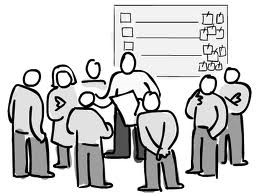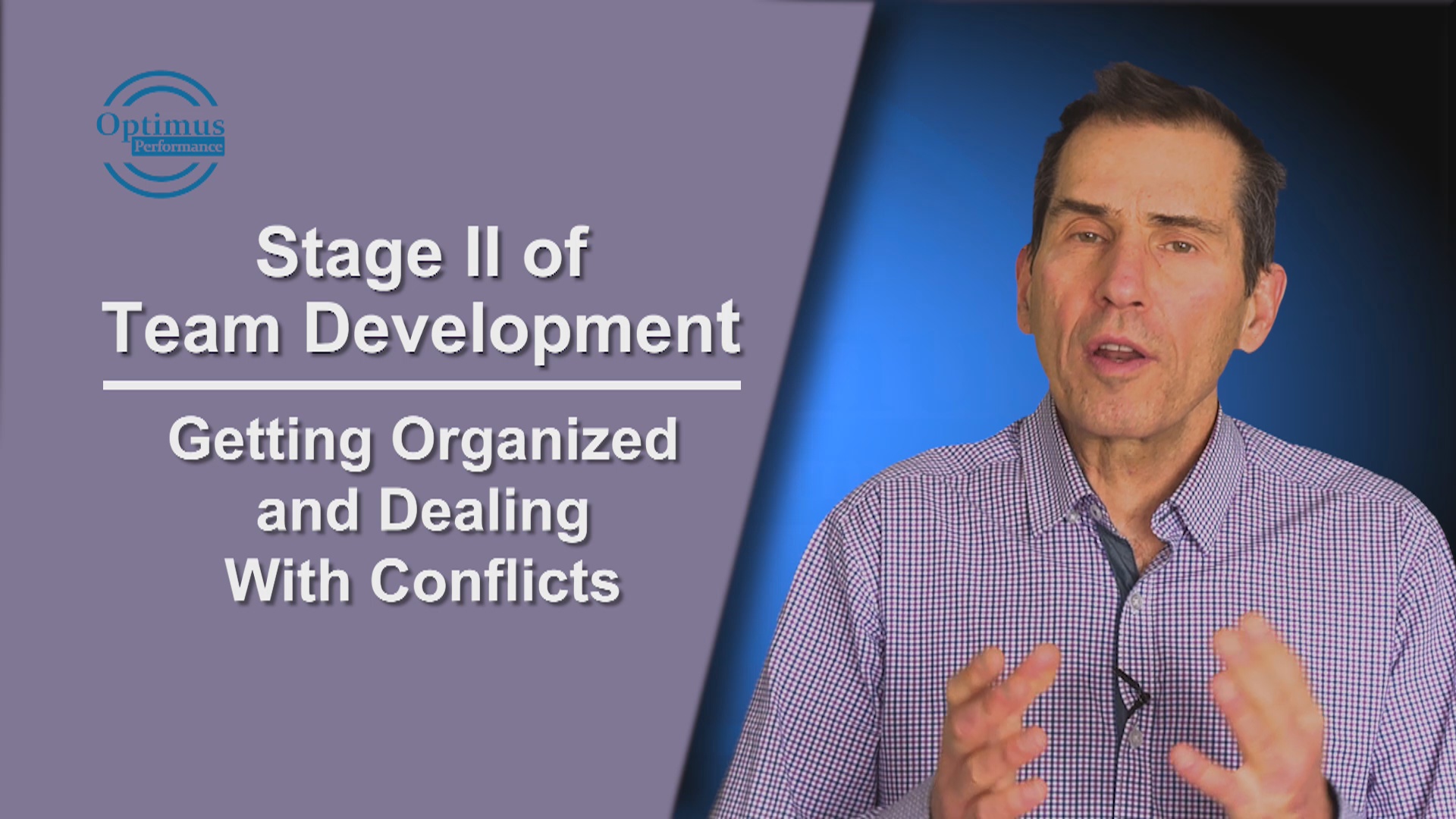Stage II of Team Development. Getting Organized and Dealing with Conflicts
In stage II of team development teams get organized and learn how to deal with conflicts. In my last article and video, I covered stage I of team development. In stage I team members are essentially dependent on their leader for all decisions and simply responsible to carry out their tasks according to performance and quality standards.
 At each stage of team development team members need to learn specific skills to function together as a team. At stage II of team development team members are feeling each other out and getting to know each other. Trust is usually low. This may less true of people who have been working together for a long time, but because teamwork requires people’s input on decision-making, a new dynamic is formed.
At each stage of team development team members need to learn specific skills to function together as a team. At stage II of team development team members are feeling each other out and getting to know each other. Trust is usually low. This may less true of people who have been working together for a long time, but because teamwork requires people’s input on decision-making, a new dynamic is formed.
As team members begin to discuss issues amongst each other potential conflicts arise. Personality traits drives specific behaviors that can cause misunderstanding as people express themselves. Some people express themselves more assertively for example and others could perceive this as wanting to control things. Another type might think that their ideas are the best and might try and dominate discussions to get their point across and accepted. Still other types may be fearful of conflict and would tend to hold back their thoughts.
An essential skill for team members to learn is self knowledge and mutual understanding. When people better understand themselves and each other, they become more tolerant and appreciate of others rather than fearing the differences.
 In our leadership and team training programs we used the types of people approach developed by Fritz Glaus and practically explained in his book Crazy-Zoo To Know Thyself Made Easy. Personality assessments such as the PXT Select or the Profiles Performance Indicator can be used as well.
In our leadership and team training programs we used the types of people approach developed by Fritz Glaus and practically explained in his book Crazy-Zoo To Know Thyself Made Easy. Personality assessments such as the PXT Select or the Profiles Performance Indicator can be used as well.
At this stage of team development, the leader needs to involve people in decision-making. This is to establish goals for the team, discuss improvements and solve problems. Potential conflicts may arise through these discussions and the skills required by team members are active listening, consensus building and dealing with conflict.
It’s the supervisor or manager’s responsibility to provide skills training to team members that I mentioned above. The organization needs to provide the manager with the resources needed as not all managers are able to train their team members on these skills.
In upcoming articles and videos, I will cover these skills and the next levels of team development in more detail. Subscribe to our newsletter and YouTube channel to stay informed.
